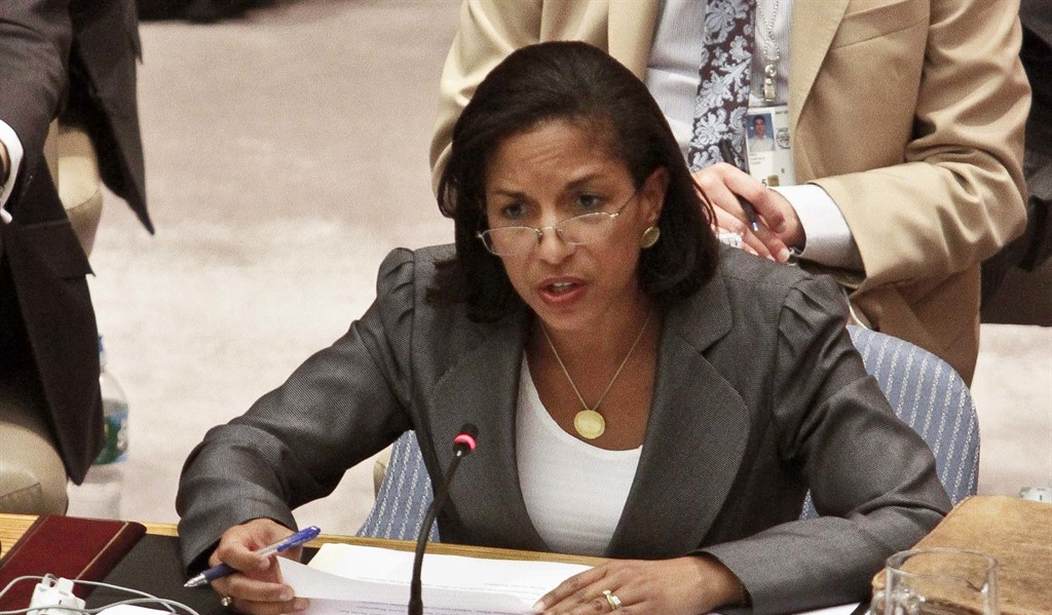It takes balls to offer advice to a new administration on how to clean up a mess you and your boss left sitting for eight years, so congrats to her on that. I wonder if she already has her “We can learn to live with Iranian nuclear ICBMs” op-ed written for 2024 or whenever that ends up happening.
Not to be that guy who goes around telling Democrats “this is how you got Trump,” but this is how you got Trump:
First, though we can never legitimize North Korea as a nuclear power, we know it is highly unlikely to relinquish its sizable arsenal because Mr. Kim deems the weapons essential to his regime’s survival. The North can now reportedly reach United States territory with its ICBMs. The challenge is to ensure that it would never try.
By most assessments, Mr. Kim is vicious and impetuous, but not irrational. Thus, while we quietly continue to refine our military options, we can rely on traditional deterrence by making crystal clear that any use of nuclear weapons against the United States or its allies would result in annihilation of North Korea. Defense Secretary James Mattis struck this tone on Wednesday. The same red line must apply to any proof that North Korea has transferred nuclear weapons to another state or nonstate actor.
Second, to avoid blundering into a costly war, the United States needs to immediately halt the reckless rhetoric. John Kelly, Mr. Trump’s chief of staff, must assert control over the White House, including his boss, and curb the Trump surrogates whipping up Cuban missile crisis fears.
She and Obama approached the Iranian nuclear issue the same way. Their guiding principle there, as here, was that war is not merely a horrible choice but the worst possible choice. Forced to choose between leaving a viciously anti-American regime to its devices in developing nuclear ICBMs and a major war to try to to disarm them before America is within reach, Team O will opt for the former every time and hope for the best. There’s some logic to playing for time and regime change in Iran’s case since they’re not as far along as North Korea is on nukes and there’s a decent chance that whatever replaces the mullahs would be more friendly to the United States. Not so with North Korea. They already have nuclear-tipped missiles; now it’s a matter of extending their range. And if Kim Jong Un is deposed, there’s no reason to believe that what follows him will be better disposed to the U.S. There’s no “moderate” opposition. If anything, a junta that ousted Kim might need to be more overtly anti-American than he is in order to build legitimacy with the population.
Two things strike me about her piece. One, true to the spirit of “the Resistance,” is the sense that she regards Kim and his inner circle as more stable than Trump and his advisors. Kim is “vicious and impetuous, but not irrational,” she argues; meanwhile, criticizing Trump, she notes that “[r]ational, steady American leadership can avoid a crisis and counter a growing North Korean threat.” One leader is “not irrational” while the other implicitly is. Also, Trump and his surrogates are guilty of “reckless” rhetoric but Kim’s rhetoric, in Rice’s words, is “belligerent and colorful.” We can live with North Korean nuclear weapons threatening the world, but Trump threatening the world? She seems more iffy on that.
I’m also struck by how internally incoherent her advice is. She admits in the excerpt above that Kim’s not going to give up his nuclear arsenal. The regime’s prestige depends on it. If they turned around after decades of telling their people that nukes are the great equalizer between them and America and made a deal to give those nukes away, the Kim mystique might collapse. It’s foolish to expect him to give up his nuclear chips. So … what’s the point of this, then?
Fourth, we must continue to raise the costs to North Korea of maintaining its nuclear programs. Ratcheting up sanctions, obtaining unfettered United Nations authority to interdict suspect cargo going in or out of the North, increasing Pyongyang’s political isolation and seeding information into the North that can increase regime fragility are all important elements of a pressure campaign.
A pressure campaign to what end? If you’re convinced that nothing will pry the ICBMs out of Kim’s hands then a sanctions campaign aimed at “increasing regime fragility” seems like a terrible idea. One of the horrible implications of Rice’s “learn to live with it” approach is that once you commit yourself to that position the rational next step is to commit yourself to the regime’s stability. After all, the more “fragile” Kim feels, the more likely it is that he’ll do something desperate with his nukes — a mad first strike on American territory, a black-market sale of warheads, you name it. Accepting a North Korean nuclear capability logically requires investing in the regime itself, to make sure that its hold on its weapons is secure and that it has no incentive to use them. The lesson derived from that by other budding nuclear regimes, like Iran, would be disastrous. But thanks to Susan Rice and Obama, it’s probably already a lesson learned.
Exit quotation from Barack Obama: “To be clear, the United States does not, and never will, accept North Korea as a nuclear state.”








Join the conversation as a VIP Member